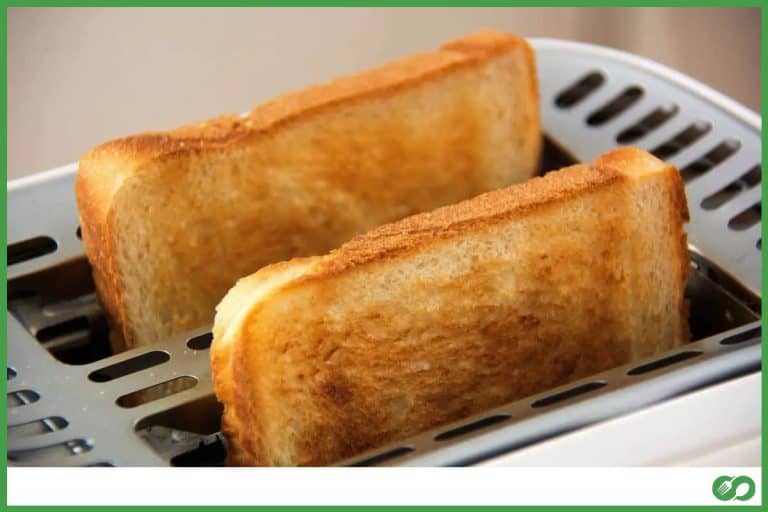Do All Chicken Eggs Taste The Same?
This post may contain affiliate links which means that, if you choose to make a purchase, I may earn a small commission at no extra cost to you.
Many people believe that brown chicken eggs taste better than white chicken eggs. At the same time, others are indifferent to how color changes affect the taste. So, do all chicken eggs taste the same? You may guess it, but there is more to the taste than the eggshell’s color.
In reality, what affects the taste of chicken eggs the most is what the hen is fed. Watching what a chicken gets daily as food can point to why its eggs taste the way they do. There is no option to make chicken eggs taste better, but some foods can make the eggs taste bad.
Let’s look at how tastes in chicken eggs can change. There are ways to make your chicken lay better-tasting eggs by fixing its diet. And there are also ways your chicken’s eggs can suddenly start tasting odd. I’ll get into all of it and more.
How Does Taste Differ Among Chicken Eggs?
An egg contains many factors that add to its taste. Notice that the yolk taste is most prominent when you eat an egg. So, the yolk is the key to flavor and is rich with fat when hens get a diet with more fatty ingredients.
Fatty ingredients like certain oils can make the yolk taste better – or enrich it. The main takeaway is that if you keep your chickens, keeping them in a healthy, productive environment works best.
Does The Color Of The Eggshell Affect Taste?
Despite a common belief, the color of eggshells does not indicate anything about the taste of the chickens. The colors are different in chicken eggs due to the breed and atmosphere around the chicken. That is about it.
Besides breed and environment, the chicken’s diet and productivity can also influence the color of the shell. If the nutritional value concerns you, be assured that shell color does not affect that either.
What Kind of Chicken Eggs Taste The Best?
Since fat affects how good eggs can taste, fatty content is critical. Eggs containing more fatty acids like Omega-3 taste better than other eggs. Generally, you can find omega-3-enriched eggs among pastured eggs.
In a public vote, people tasted different eggs to determine what tasted the best. After the taste test, most tasters that noticed a difference chose the ones with more fat content. Either pasteurized or eggs that had 325 mg of omega-3 in one serving won their support.
The more omega-3 content, the better the taste. Additionally, the tasters busted a myth. Whether the eggs were cage-free or organic had no effect on their preference.
Lastly, chickens that deal with a less-stressful environment and can be productive yield better eggs. How fresh you have your eggs can also heavily affect the flavor you get. That’s why some claim farm-fresh eggs taste better – supermarket eggs can go up to 2 months until the expiration date.
What Makes Some Chicken Eggs Taste Better Than Others?
When growing your own chicken, you can fix your chicken’s diet to yield eggs that taste better. Remember that you can only get the taste to become routine rather than elevating it to be the best-tasting eggs ever. So, let’s examine how you can make your chicken eggs taste better.
Chickens roaming around and grabbing food from different sources can yield eggs that taste better. The yolks also show it – with a more saturated yellow color. Free-range or organic does not affect the taste, but it can add to better flavors.
We already know by now that fatty content enriches the egg’s taste. Besides feeding your chicken a fattier diet, you can also remove some substances to refine the flavor.
What You Shouldn’t Feed Chickens To Have Better Tasting Eggs
The diet your chickens have can heavily affect the taste of their eggs. Some food items are better off unused when you want the eggs to taste better. So, what part of your chicken’s diet should you fix?
Fish Meal
Fish meal is a common ingredient in many brands of chicken feed. While that is not a problem with nutrition, it can affect the taste of the eggs badly. You may notice a fishy stench in your chicken eggs or an odd aftertaste.
To avoid a fishy taste, try using feed that contains less than 1.5% of fish meal. Since the protein value is good for the chickens, going fish-meal-free might not be the best idea.
Onions And Garlic
The good thing about onions and garlic in chicken feed is that they can only affect the taste when you use large amounts. So, moderately using onion and garlic powder in your chicken feed will not affect the taste.
Flaxseed
Flaxseed or flaxseed oil is another ingredient that can only affect the taste sometimes. A specific enzyme in most hens’ livers can remove the flaxseed’s fishy taste. If your chicken can not do that, refrain from using flaxseed or oil.
But since flaxseed gives the chicken the necessary omega-3, you would have to switch it out with another omega-3 enriched ingredient.
Does The Difference In Taste Affect Chicken Egg’s Nutritional Value?
A chicken egg’s taste can tell about how nutritious it is. While the flavor can not be a clear indicator, it still can give you a vague idea of how well the chicken was fed. Eggs with a creamier texture and richer taste are most likely enriched with good fats. So, you can say that the chicken that laid the egg you are eating was fed high-quality feed.
On the other hand, chicken eggs that taste too fishy or like sulfur can indicate less nutritional value. In this case, the chicken was probably fed lower-quality feed. Try opting for pastured chicken eggs or farm-fresh to get the most nutrition out of them.
Why Do Chicken Eggs Taste Weird Sometimes?
Chicken eggs that come from different places can have different flavors. Although the difference is subtle most of the time – it can get weird occasionally. So, let us look into the odd flavors you can get from eggs sometimes and why they taste so.
Fishy Taste
The most common reason for the fishy taste in chicken eggs is a fish meal in chicken feed. Hens that lay brown eggs are more likely to lay fishy-tasting eggs because of fish meal. The egg yolk can accumulate trimethylamine or TMA when feeding a canola meal. The TMA can then add a fishy odor to the egg.
While the fishy taste may seem like a lousy indicator, it is not most of the time. The flavor indicates that the protein content in your eggs is adequate. But if the taste gets too intense, it may be time to change the chicken feed.
Sulfur Taste
A sulfur taste can come from eggs – but only when it is overcooked. When you overcook chicken eggs, the iron content inside the egg yolk can react with the sulfur of egg white. The reaction then gives rise to a weird smell that you get.
Metallic Taste
The metallic taste in eggs comes from the iron content in the egg yolk. When the chicken egg yolk comes in contact with air, it can react and turn into a metallic smell. Though it seems like a warning sign, the metallic smell does not indicate that the egg has gone wrong. So, metallic-tasting eggs are safe to eat.
As for any other taste, it might be time to check your tastebuds. Certain conditions can affect our perception of flavor. Disorders like parosmia and dysgeusia can cause you to feel like eggs and other foods taste weird.








